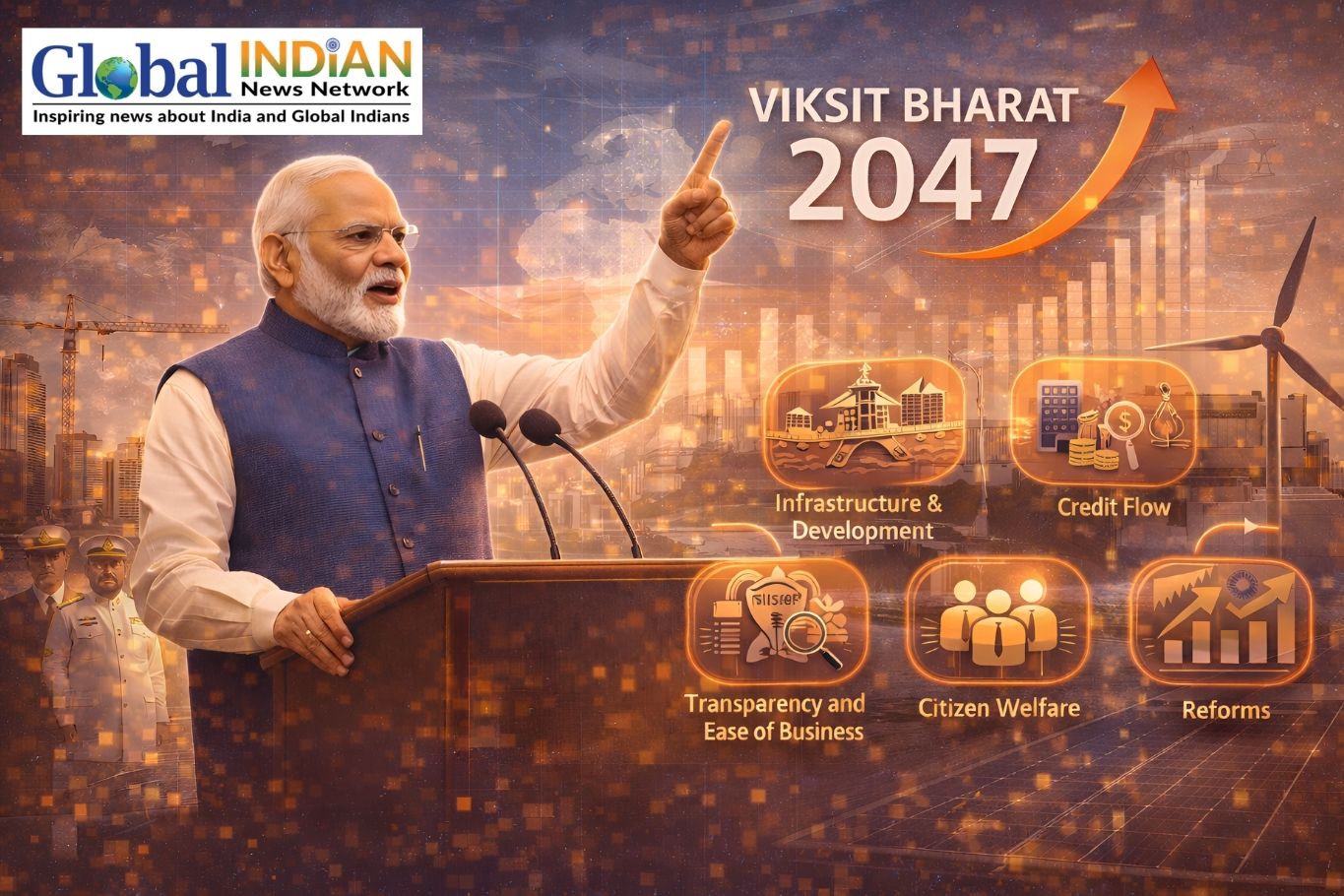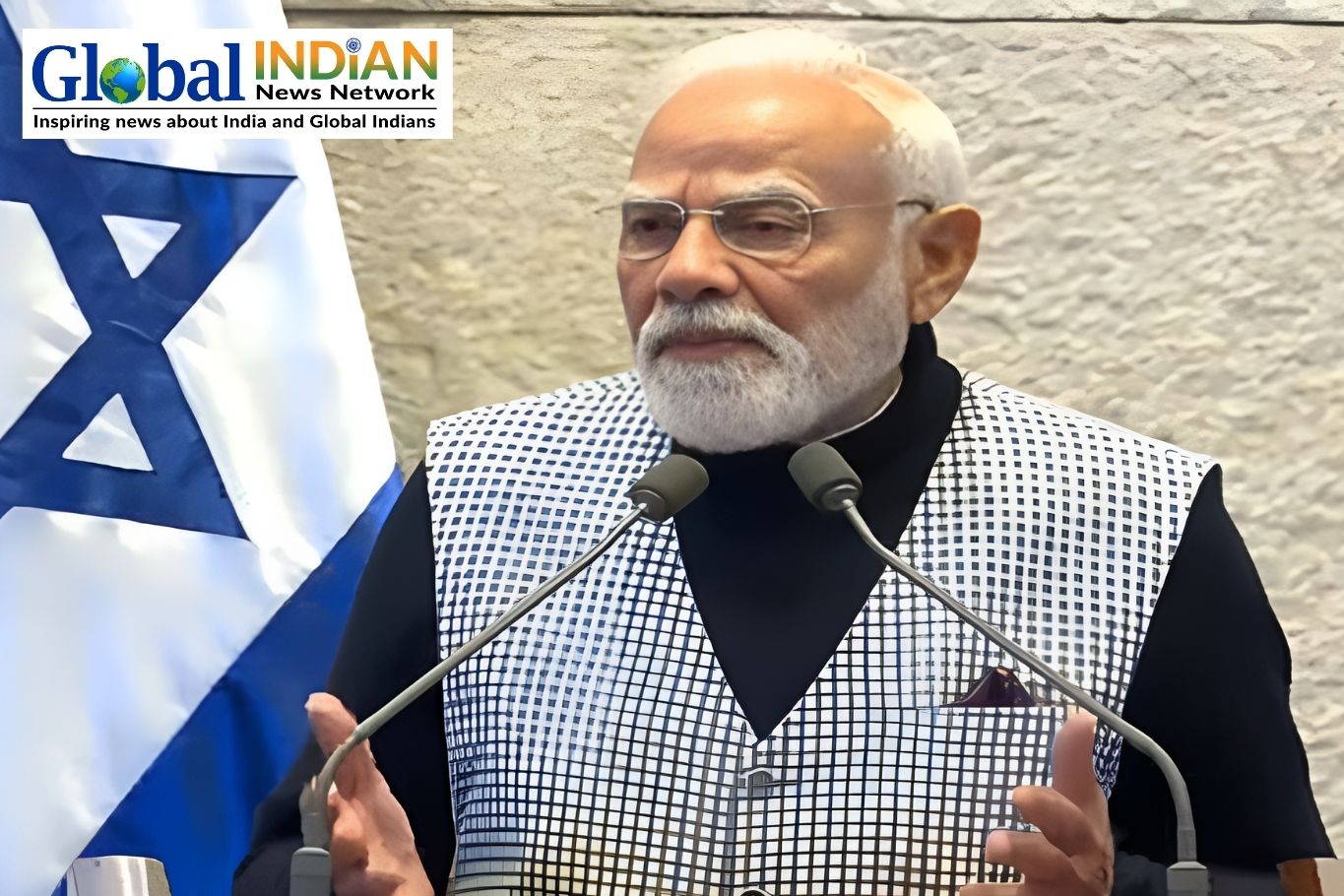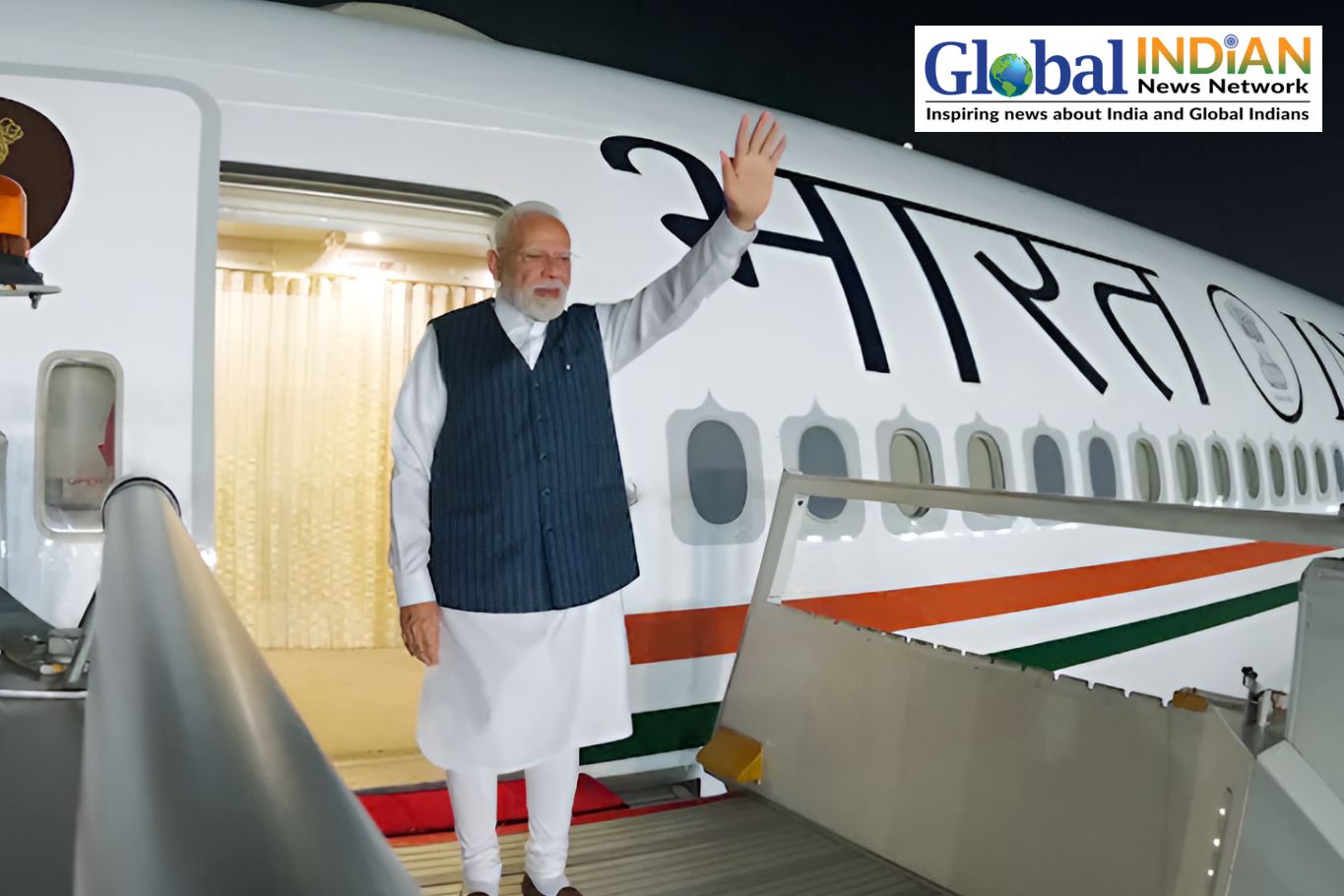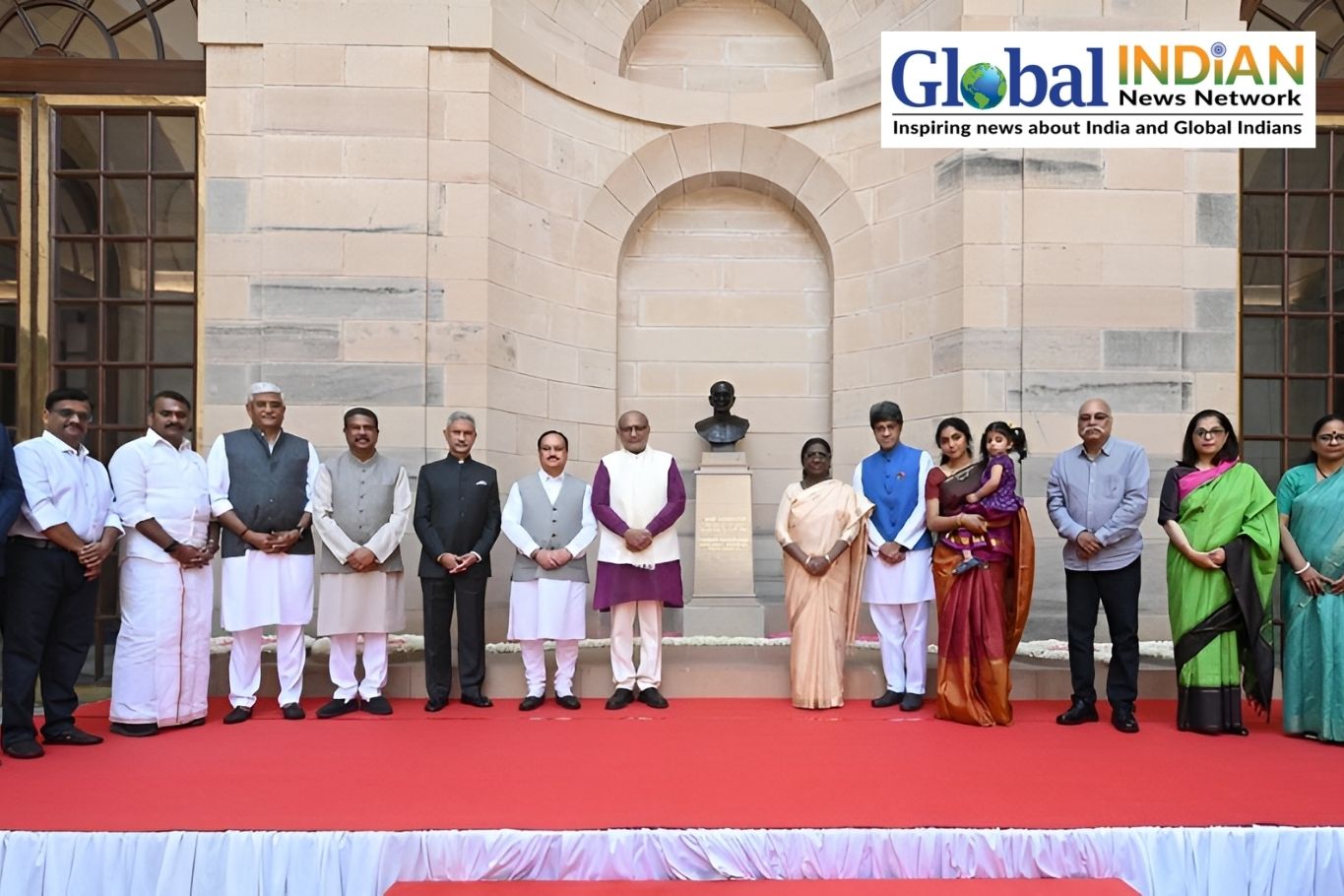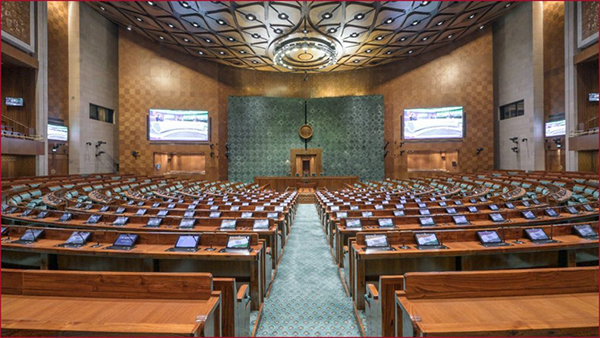 Prime Minister Narendra Modi officially inaugurated and presented the newly constructed Parliament Building to the nation. In commemoration of this momentous occasion, he unveiled a commemorative stamp and a 75-rupee coin. Addressing the audience, which hailed the new Parliament as a historic milestone, the Prime Minister expressed that certain moments in a country’s progress become everlasting, and the significance of May 28th exemplifies such an occasion.
Prime Minister Narendra Modi officially inaugurated and presented the newly constructed Parliament Building to the nation. In commemoration of this momentous occasion, he unveiled a commemorative stamp and a 75-rupee coin. Addressing the audience, which hailed the new Parliament as a historic milestone, the Prime Minister expressed that certain moments in a country’s progress become everlasting, and the significance of May 28th exemplifies such an occasion.
Regarding the new Parliament structure, he emphasized that it represents more than just a physical edifice; rather, it symbolizes the aspirations of India’s 1.4 billion people. In terms of its global significance, he conveyed that it sends a message to the world about India’s resolute determination, asserting that as India advances, so does the rest of the world.
Regarding ‘Sengol,’ Prime Minister Modi highlighted its significance during the Chola dynasty as a representation of justice, righteousness, and effective governance. He further mentioned that once the proceedings commence in the new Parliament, the presence of ‘Sengol’ will serve as a source of inspiration for Members of Parliament.
Reiterating India’s status as the cradle of democracy, PM Modi emphasized that democracy is deeply ingrained in our culture, ideals, and customs. He acknowledged that India had been burdened with a colonial mindset but expressed that the new Parliament aims to liberate itself from those constraints.
Addressing the necessity of a new Parliament, the Prime Minister acknowledged that as the number of seats and members of Parliament is set to increase in the future, the construction of the new Parliament is imperative. Commending India’s federal structure, PM Modi highlighted the accomplishments of the BJP government over the past nine years, ranging from constructing new panchayat bhawans (local government buildings) to the creation of the Sansad bhawan (Parliament building). He further stated that during this period, the government has built homes for four crore impoverished individuals and constructed 110 million toilets.

